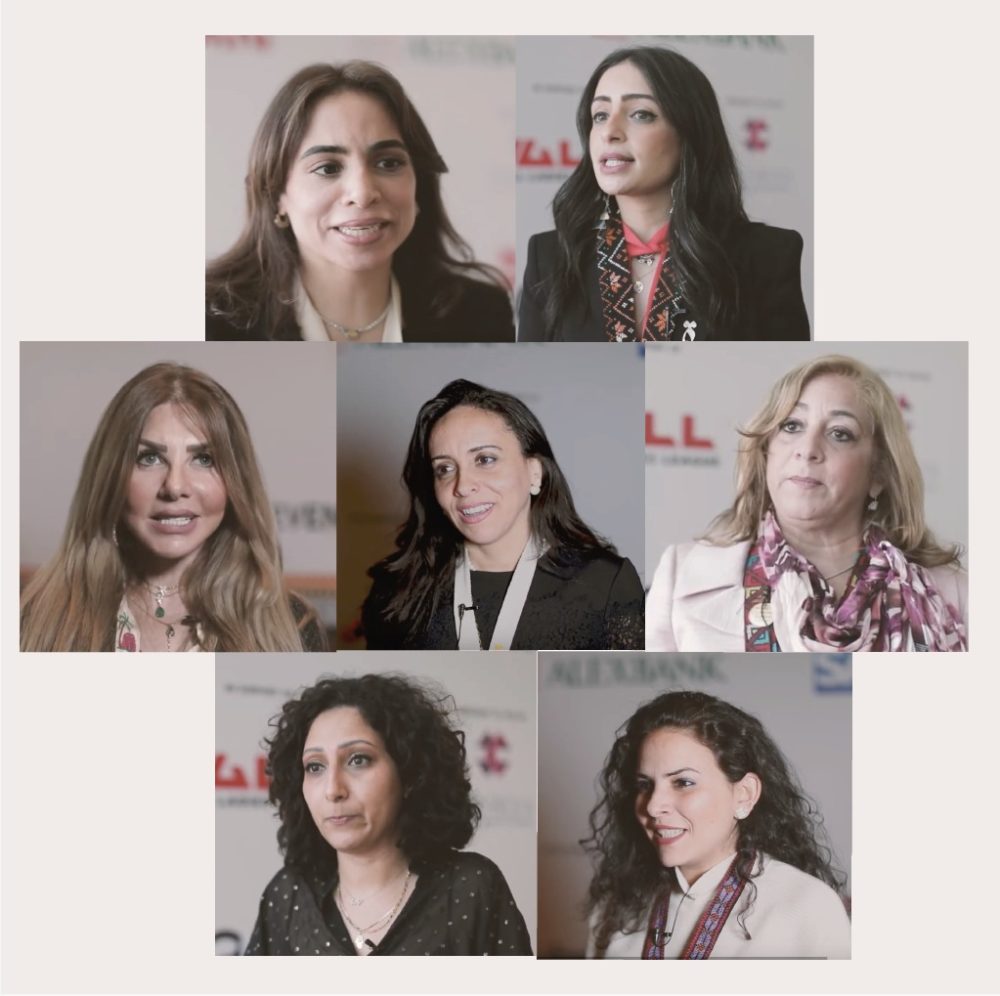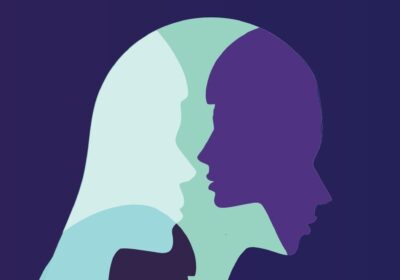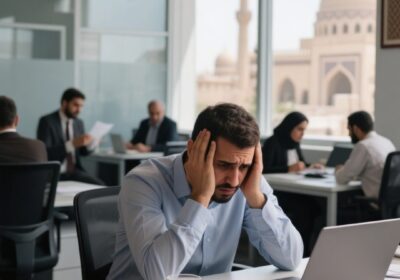Recent news has all been about coronavirus (COVID-19) and although it’s important, it is also necessary to remember how the month of March is all about women empowerment. Despite that COVID-19 managed to cancel major global events, luckily the Women Economic Forum (WEF), that took place on March 4 and 5, was not one of them. When ‘sisterhood’ is the main economic power behind empowering women, as the founder of WEF and ALL Ladies League, Harbeen Arora puts it, there is no amount of words, articles or lists that can sum up the success of the event.
WEF was organized and brought by The Worx, an event management consultancy that is primarily women-led, under the auspices of Egyptian President Abdel Fattah El Sisi and with the support of the National Council for Women. Although they brought almost 600 incredible international and national attendees to Egypt, we’ve picked a couple to shed light on in this list.
1) Laila Hosny
Head of CSR and Sustainable Development at ALEXBANK, Hosny believes that the WEF conference also acts as a message from the country and the government in the sense that it continues to support women. “This is still present with us from 2017; which was the year of women. So until 2020, we still have important issues and global conferences. This is a message saying how Egypt wants to participate in empowering women economically and socially,” she said.
“To participate in International Women’s Day on March 8 and the Egyptian Women’s day on march 16, we decided to do something different: Ghalya,” Hosny added.
ALEXBANK’s initiative, “Ghalya”, is all about economically and socially empowering women in Egypt’s governorates.
This includes education, health and teaching handmade crafts – specifically because it is something that many women in Egypt are talented in. Backed by the National Council of Women, the initiative focuses on young girls too.
2) Mai Salama
Managing Partner at The Worx, Salama is an example of an empowered woman herself and she spoke to 925Egypt about WEF coming to Egypt in the first place.
The Worx was one of the companies organizing the World Youth Forum and the only company responsible for content and speakers management. At the time, “we had a speaker who was recommended by Dr. Maya Morsi [President of the National Council for Women], which is Harbeen Arora. And then one morning during breakfast, I was walking by with Neamat Khalil [Chairwoman at The Worx] and Dr. Maya Morsi told us how Harbeen wants to bring WEF to Egypt,” Salama shared.
However, initially Khalil and Salama did not think they would be hosting an event this large. Alas, Arora had decided that the annual WEF would be held in Egypt and not a smaller, chapter version.
Despite the trials and tribulations of event planning, Salama explained that they didn’t see this as just a conference. They wanted a real value of networking where people can actually do business together. With that goal in mind, they even included new technologies in event planning, such as silent stages, for the first time in Egypt.
Salama said “I am loving walking around and seeing so many different nationalities and faces, and hearing different languages.”
When asked about women empowerment, Salama believes that women are not necessarily under-powered in Egypt. Although, she admits there are issues she may herself have not faced but other women do face, “we have more opportunities than the world gives us.”
3) Amal Yehia Khalil
Khalil is the CEO, founder and owner of Venti who took the world of fashion and redesigned it for Egypt by initiating the ‘Fashion Forward’ concept for the first time in the country. Her love for designing and fashion quickly transformed into self-entrepreneurship for her brand, Venti, to come through.
She worked in industry and trade for 30 years and back in the day, this was not at all a place for women to be. “But in these 30 years, I took small steps to change this and train women to work with us in the company; especially women with families and children,” she said. Today, most of the executive and managerial positions at Venti are held by women. “I believe women are capable,” she added.
Khalil explained that for a woman to enter the industry field, actually manage factories and deal with employees, all while working for ‘Fashion Forward’ was no easy task. “We don’t just do regular clothes, we do clothes for a certain social class because this is our target audience. We are in malls that target this audience and now, we are able to compete with international brands,” she said.
4) Mai Abdel Asim
“The idea itself that you have so many like minded women in the same room sharing ideas, networking and getting to know each other and sharing successes and failures is empowering,” said Abdel Asim, the founder and managing director of What Women Want Magazine and Media and More.
For Abdel Asim, being a woman is not something that ever stopped her but she discovered the society’s prevalent issues when she started working on the magazine and working with other women 14 years ago. “I never had them but I come from privilege in that respect,” she shared.
“When I started working with women and telling their stories, I got to know all about the obstacles and barriers placed on women that are not placed on men,” she said.
Because What Women Want Magazine addresses issues faced by women, Abdel Asim explained that their topics come from reality. “They are problems we see. It’s authentic and around us. It’s all about changing the narrative,” she said.
“I dream of a future where you don’t have to have special days, months of festivities for women but we are not there yet,” Abdel Asim shared.
5) Amina Ghali
Every girl’s favourite jewelry brand, Azza Fahmy, is unmissable as 925Egypt also spoke to the head designer, Amina Ghali. “This year, we are celebrating 50 years of Azza Fahmy. When my mom started Azza Fahmy the brand in 1969, things were different,” Ghali said. However, this didn’t stop her.
“She never felt that, as a woman, she had any problems or challenges, because she saw this dream very clearly. She was going to get there regardless,” Ghali explained.
“My mom never told me ‘you can’t do this because you are a girl,” she added. Of course, not having a family to look after or any specific responsibilities make things easier; however, “we didn’t grow up in a house that believed because you are a woman, then fulfilling your dream is impossible,” Ghali said.
The head designer and daughter of Azza Fahmy sees that Egypt has truly changed in the last 20 years as women are more empowered and going on to achieve their dreams. She said things may differ from one field to another, but there is progress.
6) Elizabeth Berman
Berman is the President and CEO at Continental Food and Beverage, Inca Kola, the first Hispanic and woman-owned bottler and distributor for The Coca Cola Co. She told 925Egypt how she wishes more women would be on boards in corporations, in high government positions and starting their own businesses as entrepreneurs.
“More and more women are becoming empowered by organizations such as WEF. We are all being told and encouraged to start our own businesses. From the start, women have been workers behind the scenes but now we are becoming more empowered,” Berman said.
Essentially, it’s not all about empowering women though. Berman pointed out that WEF is also a platform to make friends. As women, developing relationships is also important in business because it provides comfort. “When you make friends, before you know it, you become business partners too,” she said.
“We are all sisters as Dr. Harbeen says.”
7) Marwa El Khodary
Khodary is a Partner at ALC Alieldean Weshahi & Partner, a leading law firm in corporate law. She spoke to 925Egypt about women in this predominately male career line and how growing up surrounded by other career-oriented women helped her.
“The status of women in Egypt is very positive but I think that the top representation of women is not as reflective of the average Egyptian woman,” she said. Although the status of women is positive when looking at ministers and parliament representation, Khodary also wants to see women in industries, boards and syndicates.
Khodary expressed that part of empowering women has to do with ‘enabling’ them and having a proper ‘enabling system’. And this includes men and a support system for working mothers, for instance.




























